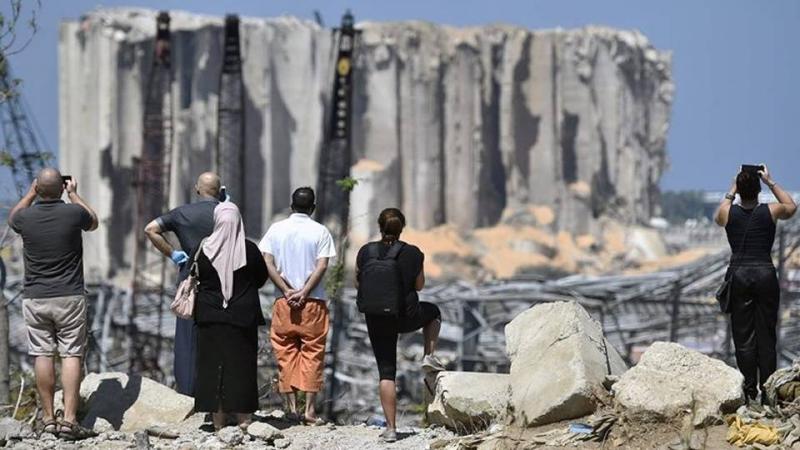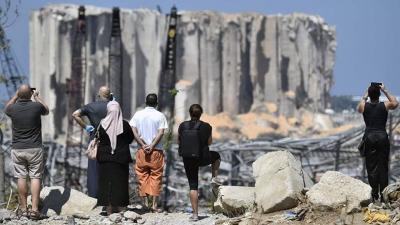This week, the investigations into the Beirut port explosion returned to the forefront after the Higher Judicial Council approved a proposal from Minister of Justice Henry Khoury to appoint an alternate judge for the lead investigator, Judge Tarek Bitar, to decide on requests for the release of detainees who have been wrongfully held for over two years without undergoing a serious investigation.
Opinions on the decision of the Higher Judicial Council varied, with supporters and opponents reflecting the contentious nature of Lebanese issues, where political forces and parliamentary blocs differ in their assessments and interpretations of implications. Many opponents of the decision argue that the beneficiary is the Free Patriotic Movement, which seeks to secure the release of Customs Director Badri Daher, who, according to case observers, has been subject to something akin to a conspiracy and persecution. However, the matter extends beyond him and concerns all wrongfully detained individuals whose families are demanding their release and the resolution of their fates without delay.
Insiders note that the hasty and preemptive administrative decisions to detain some individuals aimed to quell public anger following the explosion on August 4. It has been revealed that the public prosecutor, Judge Ghassan Khoury, during the interrogation of Badri Daher, told him, "You need to confess that you are responsible, negligent, and careless," and he refused to accept any documents proving that Daher had no connection to the unloading of the ammonium nitrate shipment, nor did he allow this to be documented in the interrogation report. Notably, this same judge was later charged by the lead investigator, and the Court of Cassation accepted his recusal request, which means the nullification of the investigations that led to the charges by the public prosecutor Ghassan Oueidat, who also recused himself due to his relationship with Minister Ghazi Zaaiter and his preservation of a judicial investigation conducted by the State Security Directorate two months before the explosion, followed by instructing the management of the port to weld shut a door.
The Lebanese Judges' Club summarized its view on the appointment of an alternate judge, stating, "Necessity does not permit prohibitions," emphasizing that regardless of the reasons that drove the authority to propose and approve this initiative, it would have been more prudent to appoint a replacement for the Minister of Finance to release the draft decree for judicial formations, allowing the investigation to resume in a lawful manner, rather than resorting to a solution that all legal professionals unanimously agree is illegal, as there should be no alternative when the original exists.
They argued that rights cannot be protected and justice achieved in this manner, nor can trust in the judiciary be restored or its authority established. They called for a retreat from the decision, stating, "Do not participate in the destruction of what remains of the judiciary's credibility, and do not collaborate with those proposing arbitrary solutions; rather, reconsider your decision, for retracting a mistake is a virtue!"
According to Al-Quds Al-Arabi, the Minister of Justice's proposal to appoint an alternate judge was one of the available solutions to rescue the port case from the deadly stagnation of over eight months due to the suspension of the lead investigator's work in response to arbitrary recusal requests and in consideration of the humanitarian issue related to the health circumstances of some detainees.
Among the proposed solutions was for the public prosecutor, given his administrative oversight of the case, or the relevant public prosecutor due to necessity, to issue a decision to release detained individuals, particularly those charged contrary to the law, especially regarding the failure to obtain permission for prosecution from the relevant administrative authority, or due to the nullity of the initial interrogation and investigation by judges who were later recused for legal impediments, which invalidates the prosecution and necessitates their release according to Article 403 of the Criminal Procedure Law.
Additionally, other solutions discussed included addressing the requests for the transfer of the case submitted months ago by the defendants, which were referred by the President of the Higher Judicial Council, Suhail Abboud, to the sixth chamber, chaired by Judge Jamal Khoury, which must issue a decision urgently without delay due to the illegal detention of individuals and the suspension of the investigation, in accordance with Article 340 of the Criminal Procedure Law.
However, the solution ultimately settled on the Minister of Justice's proposal to appoint an alternate judge, based on a precedent involving the appointment of Judge Jihad Al-Wadi as a lead investigator in the assassination case of former Prime Minister Rafik Hariri and his associates during the absence of the original investigator, Judge Elias Eid, during the judicial vacation period of 2006, based on a letter from former Minister of Justice Charles Rizk.
Yet this decision did not pass without incident; it created a new problem in the judicial process, noting that the identity of the alternate judge has yet to be revealed, and it remains unclear what urgent matters he could address if the suspension of Bitar continues. In response to this issue, sources within the Ministry of Justice stated that Minister Khoury never intended to exclude the original investigator or to relieve him of his duties but made his decision after consulting with the families of the detainees and victims and the Higher Judicial Council to find a legal exit.
In contrast, opposing and reformist forces do not express their conviction regarding this step; rather, they see it as targeting justice and a dubious political deal before the end of the term, questioning what would happen if the alternate judge were to decide tomorrow to transfer authority from the criminal investigation to the High Council for the Trial of Presidents and Ministers.




